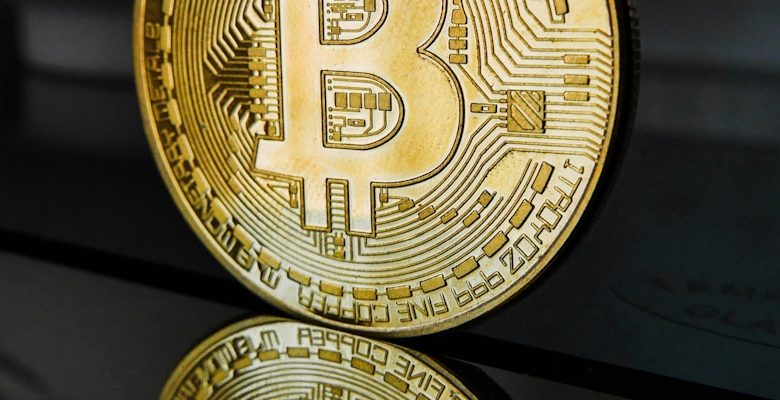What is a NFT? A Guide to Non-Fungible Tokens

- Understanding the concept of Non-Fungible Tokens (NFTs)
- Exploring the unique characteristics of NFTs
- The rise of NFTs in the digital art world
- How NFTs are revolutionizing ownership in the digital space
- Challenges and controversies surrounding NFTs
- Tips for buying, selling, and creating NFTs
Understanding the concept of Non-Fungible Tokens (NFTs)
Non-Fungible Tokens (NFTs) are a type of digital asset that represents ownership of unique items or pieces of content using blockchain technology. Unlike cryptocurrencies such as Bitcoin or Ethereum, which are interchangeable and have the same value, NFTs are one-of-a-kind and cannot be exchanged on a like-for-like basis.
This uniqueness is what sets NFTs apart and gives them their value. NFTs can represent anything from digital art, collectibles, music, videos, to virtual real estate. Each NFT has a unique identifier that distinguishes it from all other tokens, making it rare and valuable to collectors and investors.
One of the key features of NFTs is their immutability, meaning that once they are created and added to the blockchain, they cannot be altered or replicated. This makes NFTs a secure and reliable way to prove ownership of digital assets, as the transaction history is permanently recorded on the blockchain.
Exploring the unique characteristics of NFTs
NFTs have gained popularity in recent years due to their unique characteristics that set them apart from other digital assets. One of the key features of NFTs is their non-fungibility, which means that each token is one-of-a-kind and cannot be exchanged for another token of the same value. This uniqueness is what makes NFTs valuable to collectors and investors alike.
Another important characteristic of NFTs is their immutability, which means that once a token is created and recorded on a blockchain, it cannot be altered or deleted. This gives NFT owners a sense of security knowing that their digital assets are tamper-proof and cannot be duplicated.
Additionally, NFTs are indivisible, meaning that they cannot be divided into smaller units like cryptocurrencies can. This makes NFTs a whole and complete asset, further enhancing their uniqueness and value. The indivisibility of NFTs also adds to their scarcity, as there is a limited supply of each token.
Furthermore, NFTs are programmable, allowing creators to embed certain attributes or functionalities within the token itself. This programmability opens up a world of possibilities for artists, musicians, and other content creators to explore new ways of monetizing their work and engaging with their audience.
Overall, the unique characteristics of NFTs make them a fascinating and innovative asset class that is revolutionizing the way we think about ownership and value in the digital age. Whether you are an artist looking to tokenize your work or an investor looking to diversify your portfolio, NFTs offer a world of opportunities to explore and enjoy.
The rise of NFTs in the digital art world
NFTs, or Non-Fungible Tokens, have seen a significant rise in popularity within the digital art world in recent years. These unique digital assets have revolutionized the way art is bought, sold, and collected online.
NFTs allow artists to tokenize their work, creating a digital certificate of ownership that is stored on the blockchain. This certificate ensures that the artwork is one-of-a-kind and cannot be replicated or exchanged for another piece.
With the rise of NFTs, digital artists now have a new way to monetize their creations and reach a global audience. By selling their art as NFTs, artists can receive royalties every time their work is sold or traded, providing them with a more sustainable source of income.
Furthermore, NFTs have opened up new possibilities for art collectors, who can now own and trade digital artworks in a secure and transparent manner. The scarcity of NFTs makes them highly sought after, with some pieces selling for millions of dollars at online auctions.
Overall, the rise of NFTs in the digital art world represents a significant shift in how art is created, bought, and sold in the digital age. As the popularity of NFTs continues to grow, it is clear that they have the potential to revolutionize the art market and empower artists in new and exciting ways.
How NFTs are revolutionizing ownership in the digital space
NFTs are changing the game when it comes to ownership in the digital world. These tokens represent a unique asset that cannot be replicated or replaced, making them ideal for proving ownership of digital content. By using blockchain technology, NFTs are able to create a verifiable and secure record of ownership that cannot be tampered with.
One of the key ways in which NFTs are revolutionizing ownership is by allowing creators to monetize their digital creations in ways that were not possible before. Artists, musicians, and other content creators can now sell their work directly to consumers as NFTs, giving them a new source of income and a way to connect with their fans on a deeper level.
Furthermore, NFTs are also changing the way we think about ownership in the digital space. With traditional digital assets, ownership is often unclear or easily disputed. However, with NFTs, the ownership of a digital asset is clear, transparent, and secure. This has the potential to revolutionize industries such as art, gaming, and collectibles, where ownership is key to the value of the asset.
Challenges and controversies surrounding NFTs
One of the main challenges surrounding non-fungible tokens (NFTs) is the issue of copyright infringement. Due to the decentralized nature of blockchain technology, it can be difficult to track the original creator of an NFT. This has led to instances where artists have had their work tokenized and sold without their permission, raising concerns about intellectual property rights.
Another controversy surrounding NFTs is their environmental impact. The process of minting NFTs requires a significant amount of computational power, which in turn consumes a large amount of energy. This has sparked debates about the sustainability of NFTs and their contribution to climate change.
Additionally, there have been concerns about the speculative nature of the NFT market. Some critics argue that the value of NFTs is driven more by hype and speculation rather than intrinsic value. This has led to fears of a potential bubble in the NFT market, similar to what was seen with cryptocurrencies in the past.
Moreover, the lack of regulation in the NFT space has also raised red flags. With little oversight, there is a risk of fraudulent activities such as fake NFTs being sold or unscrupulous individuals taking advantage of unsuspecting buyers. This has led to calls for more regulation to protect both artists and collectors in the NFT market.
Overall, while NFTs offer exciting opportunities for artists and collectors alike, they also come with their fair share of challenges and controversies. It will be crucial for the industry to address these issues in order to ensure the long-term viability and legitimacy of NFTs as a form of digital asset.
Tips for buying, selling, and creating NFTs
When it comes to buying, selling, and creating NFTs, there are some important tips to keep in mind. If you are looking to purchase NFTs, it is essential to do your research and ensure that you are buying from a reputable source. Look for NFT marketplaces that have a good reputation and offer a wide variety of options to choose from.
On the other hand, if you are considering selling NFTs, make sure to set a fair price for your digital assets. Take into account factors such as rarity, demand, and the current market trends. Additionally, consider promoting your NFTs on social media and other platforms to increase visibility and attract potential buyers.
When it comes to creating NFTs, make sure to choose the right platform that aligns with your goals and objectives. Consider factors such as fees, royalties, and the level of control you will have over your digital assets. Additionally, focus on creating unique and high-quality content that will stand out in a crowded marketplace.
Ultimately, whether you are buying, selling, or creating NFTs, it is important to stay informed about the latest trends and developments in the NFT space. By following these tips and staying proactive, you can maximize your success in the world of non-fungible tokens.



